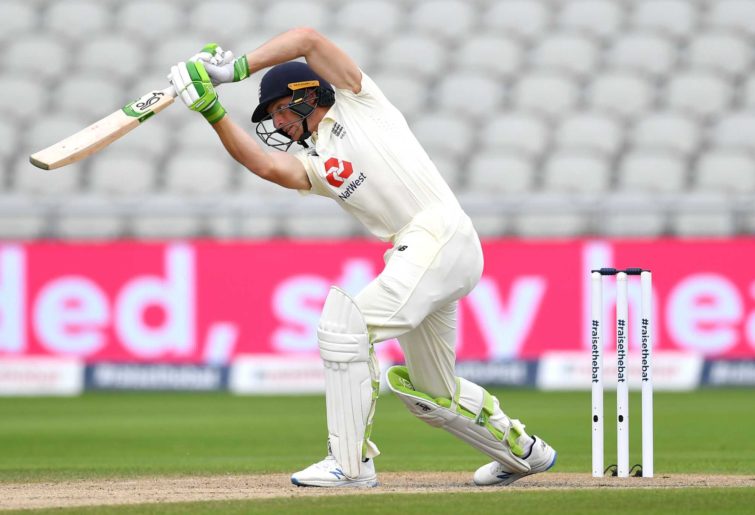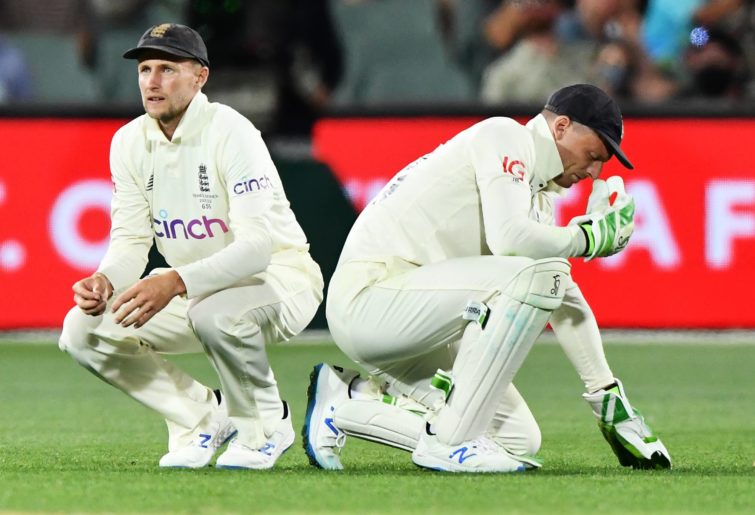Bairstow goes ballistic, clubs 45-ball ton to spearhead highest T20 run chase EVER
Johnny Bairstow has hit his way back into form with a 45-ball century as he steered his side to a record-breaking win, easily chasing…
Opinion
In 2006-07, England found themselves 3-0 against a hostile and ruthless Australian side smarting from the injustice at having briefly tasted second best.
With the series well and truly gone, even after a selection refresh for the third Test at Perth, 2005 Ashes winner Geraint Jones was taken out of the line of fire after declining returns in the series (19, 33, one, ten, zero and zero, in order).
In came Chris Read, widely considered to be one of the game’s exceptional glovemen. He had been in and around England squads since the mid ’90s, but as England cricket searched for innovation at the turn of the century, he was usually preferred as an able reserve to a more capable batsman.
Concerns over Jones’ wicketkeeping were acknowledged and accepted as part of the kinds of cost/benefit selections that were common under the Duncan Fletcher regime.
Read reached double figures only once in his four innings and never played international cricket again as Matt Prior’s emergence more or less solved England’s wicketkeeping conundrum for the next seven years.
A notable mention to Tim Ambrose, who played 11 Tests between ‘08 and ’09, though these ultimately cemented Prior’s value rather than challenged it.
Fast forward to 2021 and there are tempting echoes of a parallel between Jones/Read and Jos Buttler/Ben Foakes.
Vying for the current Test spot are Buttler, an undisputed white-ball great and probably England’s greatest raw talent since Kevin Pietersen, and Ben Foakes, a true (but increasingly rare) purist’s wicketkeeper with the genuine potential to be considered England’s best ever gloveman.
In reality, though, reducing England’s wicketkeeping options to a simplified old-versus-new dichotomy is unfair on Foakes and untrue of Buttler.

(Photo by Dan Mullan/Getty Images)
Foakes’ first-class batting stats are comfortably superior to Buttler’s. In a similar number of games (Foakes 123, Buttler 119), Foakes has scored four more hundreds (11, seven), has a meaningfully higher average (38.35, 32.82) and one additional half-century (34, 33).
Buttler’s strike rate of 58.43 is higher than Foakes’ 51.01, as you would expect, but hardly takes the breath away.
In terms of keeping, there is no comparison – Foakes’ hands are superior to almost everyone in world cricket.
Statistically, Foakes’ 283 dismissals is not hugely different to Buttler’s 267, but he has 29 stumpings compared to Buttler’s three.
This difference is too significant to put down to environmental factors such as wickets and bowlers with a sample size of 120 games.
Test comparisons are dangerous given Foakes has only played eight Tests, all on the subcontinent, but even so, Buttler has scored two centuries from 54 Tests at an average of 33.27, Foakes has one from eight at 31.53 (noting Buttler has never scored an away century).
With just a cigarette paper’s width separating their Test performances, but clear daylight between their first-class records, it is increasingly curious as to why England so stubbornly stick to their man.
Not since Mark Ramprakash has an England player been so regularly picked on the promise of what they might be able to do based on their talent rather than the body of evidence of what they actually have done.
The only differences are that Ramprakash never enjoyed anything like the kind of continuity Buttler has, and ended up with a record-breaking first-class career to prove there may have been something in that thinking.
England’s management will argue that Buttler’s leadership qualities are important to the balance of the side, and it is certainly true that he is vice-captain in all three formats.
It’s impossible for anyone to quantify these claims, especially so for the general public, who have no insight to what goes on behind closed doors.

(Photo by Mark Brake – CA/Cricket Australia via Getty Images)
So, while conceivably true, this contribution must be huge and starkly different to the evidence we actually do have.
The most memorable contributions Buttler has made in an England shirt are, firstly, to have been fined for calling an opposition player – Vernon Philander, who took 224 wickets at 22.32 in Tests – fat and a knobhead.
Buttler’s second-most memorable career moment arrived shortly before close on Thursday evening. His dropped catch off Marnus Labuschagne’s bat was significant and frankly inexcusable.
While cliches abound (‘Nobody means to drop catches’, ‘He’ll catch that 999 times out of 1000’), the truth is that a wicketkeeper’s standard should be the team’s benchmark fielding standard, both of which have been poor so far.
No amount of sledging or inane chatter throughout the day will pump up a team more than a dropped catch will deflate it. That drop will very soon have many more YouTube views than any highlights package from either of his hundreds.
Besides Joe Root, England have few genuine bankers in their line-up. Even so, England’s selection has been questionable from the outset: from no Stuart Broad or Jimmy Anderson at the Gabba to selecting five pace bowlers, none of whom are Mark Wood, in response to punishment over a glacial over rate at Adelaide.
With England staring down the barrel of yet another winless Ashes down under, they can start their revival by adding security behind and in front of the stumps.